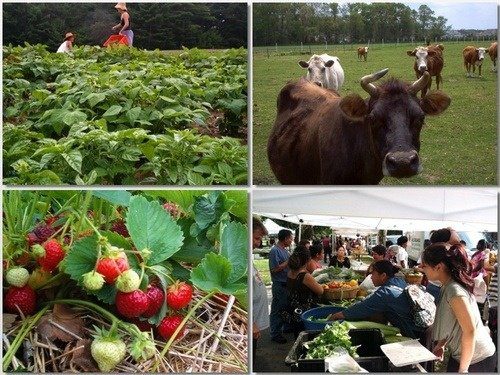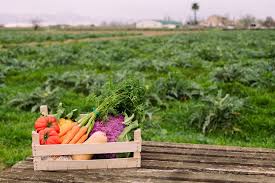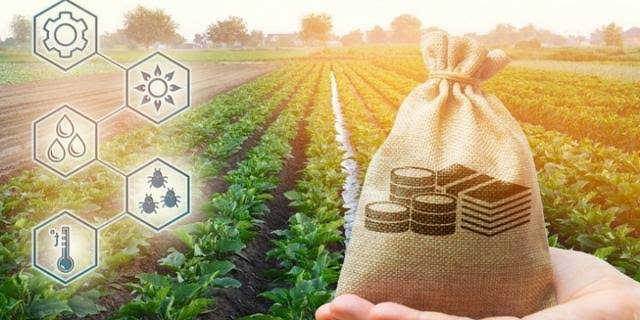To make money farming, you need to think about what you want to grow or raise. Some people grow fruits and vegetables, like tomatoes or carrots. Others raise animals, such as cows, chickens, or goats. What you choose depends on what you like and what grows well in your area.
Farming is a way to make money by growing crops or raising animals. It’s like having a big garden or a bunch of animals that you take care of. When you do it right, farming can be a good way to earn money.
Once you know what you want to farm, you have to plan. Planning means figuring out when to plant or raise your crops or animals. Different things grow better in different seasons. For example, you might plant seeds in the spring so they can grow during the warm summer months.
Taking care of your farm is crucial. You have to water your plants and feed your animals. If you don’t, they won’t grow or produce what you need. It’s like taking care of a big, green family. Happy plants and animals mean more money for you.
When your crops are ready or your animals have something to give, you can sell them. Selling means exchanging what you’ve grown or raised for money. You can sell your tomatoes at a local market or your eggs to neighbors. The more you sell, the more money you make.
Sometimes, farmers also have to be smart with their money. They need to think about how much it costs to grow or raise things and how much they can sell them for. This is called budgeting. If you spend more money than you make, farming might not be a good way to make money.
Making money from farming takes time and effort. It’s not always easy, but it can be rewarding. When you see your plants growing or your animals happy, it feels good. Plus, you’re providing food for others, and that’s important.
In addition, making money farming is about choosing what to grow or raise, planning, taking good care of your farm, and selling your crops or animals. It’s like running a small business with nature as your partner. If you work hard and make smart choices, farming can be a great way to earn money.
Read Also: Rabbit Record Keeping and Analysis
How to Make Money Farming

Farming can be a fruitful venture if approached with the right mindset and strategies. Here’s a guide on how to make money farming, using simple language to help you understand the key steps involved.
1. Choose the Right Crops or Livestock: Start by picking crops or livestock that suit your area and climate. Consider factors like soil type, temperature, and water availability. Common choices include vegetables, fruits, or poultry.
2. Create a Solid Business Plan: Plan your farm business carefully. Outline your goals, budget, and timelines. A well-thought-out plan helps you stay organized and focused on your objectives.
3. Invest in Quality Equipment: Get good farming tools and equipment. They might seem costly initially, but high-quality tools last longer and contribute to better efficiency.
4. Learn Modern Farming Techniques: Stay updated on the latest farming methods. Attend workshops or read guides to understand efficient and sustainable practices. Modern techniques can boost your yield and profits.
5. Market Your Produce Smartly: Explore different avenues to sell your products. Local markets, farmers’ markets, and even online platforms can be viable options. Effective marketing increases your chances of selling at a good price.
6. Consider Value-Added Products: Turn your raw produce into value-added items. For example, if you grow tomatoes, consider making and selling sauces or preserves. This adds value to your products and opens up new markets.
7. Diversify Your Income Streams: Don’t rely solely on one type of crop or livestock. Diversifying your products can help balance income and reduce risks associated with market fluctuations or unexpected events.
8. Embrace Sustainable Practices: Sustainable farming not only benefits the environment but can also attract eco-conscious consumers. Consider organic farming or eco-friendly methods to meet the growing demand for sustainable products.
9. Network and Collaborate: Connect with other local farmers, suppliers, and markets. Collaborative efforts can lead to shared resources, knowledge exchange, and mutually beneficial partnerships.
10. Keep Detailed Records: Maintain accurate records of your expenses, sales, and overall farm performance. This data will help you analyze your business, identify areas for improvement, and make informed decisions.
11. Take Advantage of Government Programs: Check if there are government programs or subsidies available for farmers in your region. These can provide financial support or resources to help you grow your business.
12. Adapt to Changing Conditions: Be flexible and adapt to market trends and changing conditions. Stay informed about consumer preferences and adjust your farming practices accordingly.
Remember, successful farming is a combination of hard work, dedication, and smart decision-making. By following these simple steps, you can increase your chances of making money from your farming venture.
Read Also: Required Husbandry Skills of Rabbit Production
The Advantages of Farming to Make Money

Farming as a means to make money offers several advantages that contribute to its appeal as a viable livelihood. Here are some key advantages:
1. Sustainable Income Source: Farming provides a steady income source through the sale of crops, livestock, or other agricultural products. With proper planning and management, it can offer financial stability over the long term.
2. Self-Employment Opportunities: Farming allows individuals to be their own bosses. It offers a chance for entrepreneurship, where farmers can make decisions independently and shape their business according to their vision.
3. Contribution to Food Security: By engaging in farming, individuals contribute to local and global food security. Producing crops and livestock helps meet the growing demand for food, making it a crucial and fulfilling role in society.
4. Connection to Nature: Farming provides a close connection to nature and the environment. Farmers often work with the seasons, cultivating a deeper understanding and appreciation for the natural world.
5. Potential for Rural Development: Successful farming initiatives can contribute to the development of rural areas. This includes job creation, infrastructure improvement, and overall economic growth within local communities.
6. Opportunity for Family Involvement: Farming is often a family affair, offering the chance for family members to work together toward a common goal. This can strengthen family bonds and provide a sense of shared accomplishment.
7. Diversification and Risk Management: Farmers can diversify their operations by cultivating various crops or raising different types of livestock. This diversification helps mitigate risks associated with market fluctuations or unpredictable weather conditions.
8. Independence and Control: Farming allows individuals to have control over their work and lifestyle. Farmers make decisions about what to plant, how to manage their land, and how to market their products, providing a sense of independence.
9. Potential for Innovation: The agricultural sector constantly evolves with new technologies and innovative practices. Farmers have the opportunity to embrace and implement cutting-edge techniques, increasing efficiency and productivity.
10. Environmental Stewardship: Sustainable farming practices contribute to environmental conservation. Farmers who adopt eco-friendly methods, such as organic farming or agroforestry, play a role in preserving natural resources and biodiversity.
11. Community Engagement: Farmers often engage with their local communities through farmers’ markets, community-supported agriculture (CSA), and other direct-to-consumer initiatives. This fosters a sense of community and supports local economies.
12. Long-Term Investment: Farming is a long-term investment that, with dedication and proper management, can provide returns over many years. The establishment of perennial crops or orchards, for example, can yield income for an extended period.
In conclusion, farming as a means to make money offers not only financial benefits but also opportunities for personal and community growth, environmental stewardship, and a connection to the fundamental aspects of life.
Read Also: Impact of Pollutants/Pollution on Human Health

